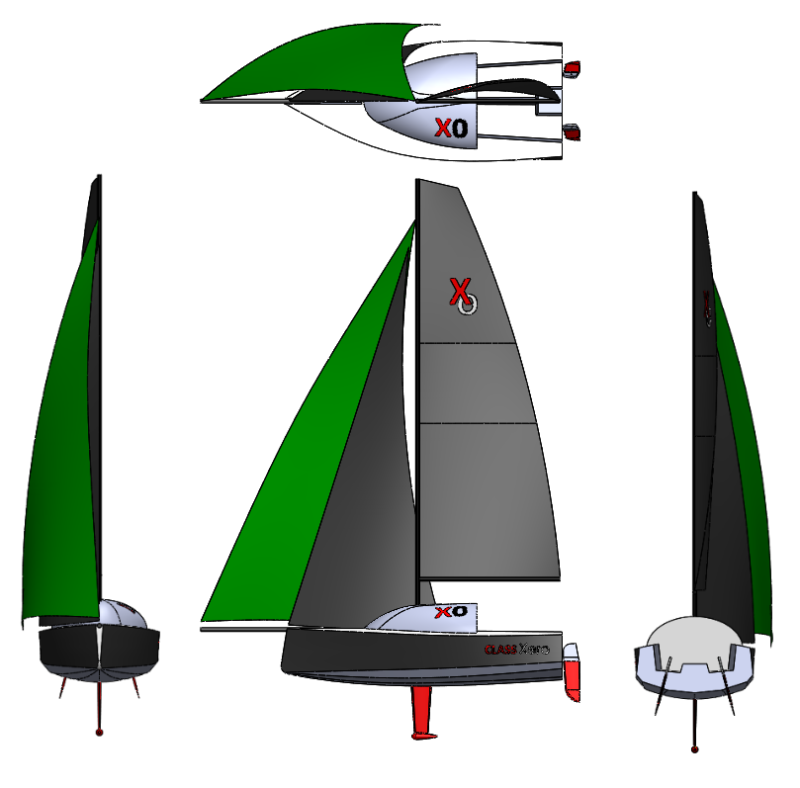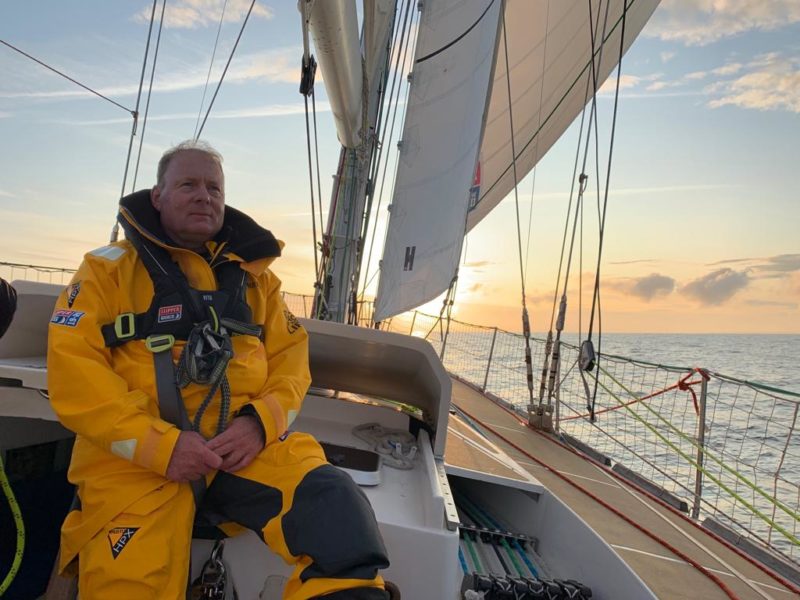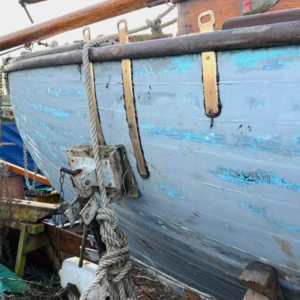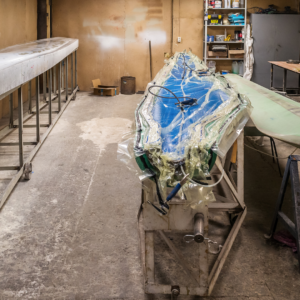Projects: Class Xero Combines Coffee and Epoxy in Sustainable Yacht Design
Image credit: Alec Smith – https://www.imagemundi.com
Craig Palmer, based in Worthing, is looking at opportunities to bring the marine industry together in a collaborative way. In the middle of building a sustainable ocean-going yacht Class Xero, he says that the industry is rightly under a lot of pressure to change, he’s ready to take the next steps and he’s using PRO-SET® epoxy to do so.
He’s been designing a Mini Transat 6.5 racing yacht for the past 12 years and was wondering how to afford making it with carbon fibre, when his sustainable eureka moment came last year.
“I did the Clipper Race – Cape Town to Australia – and was blown away on the Southern Ocean by the amount of wildlife – especially around Cape Town,” he says. “The whales were incredible, but closer to Australia the wildlife disappeared and it struck me what a loss it would be if man’s contribution to the planet was no wildlife left.
“I started thinking about the marine industry and its impact on nature. There’re lots of issues with glass fibre boats going to landfill so while I was racing I redesigned the boat to be bio-sustainable.”
The project is wide-ranging. His existing plans expanded into developing and building his safe, ocean-going yacht design from eco-materials while bringing a wide variety of similarly minded marine partners on board. He’s currently progressing to prototype build phase of hull X0.

The Class Xero is designed with ISO 12217-2 Class B offshore requirements throughout. Self-righting characteristics comes as standard.
When lockdown hit, with ‘six weeks to devote to the project’, he started his research. He settled on a recycled plastic panel with a honeycomb centre to form the basis of flat areas like the bulk heads and flooring.
But, for all the ‘curvy bits’ that need moulding, Craig started looking into flax and bio-resins. That’s when he discovered a range of custom formulated PRO-SET®bio-based epoxies.
“I needed something bio-based,” he says, “but that will work. It’s a question of picking the appropriate material for the particular application within the boat.”
PRO-SET epoxy quickly rose on his radar, not only for its superior properties but also for its credentials, for example, PRO-SET bio-based infusion epoxy yields a 26% bio-content within the cured epoxy matrix. Now Craig’s looking at how to use PRO-SET epoxy to mould recycled materials in the most effective manner.
“I noticed someone using coffee grounds to make sunglasses in Poland as a filler material to bulk out resins,” Craig says, “so I’m experimenting with them. But both coffee and flax absorb a lot of resin, so I’m working out how to minimise that.”
Currently Craig’s working with new PRO-SET bio-based M1052 laminating epoxy resin with LAM-226 hardener and M1051 adhesive epoxy resin with ADV-275 hardener (medium cure).
The plan is to compress the coffee grounds and overlay them with unidirectional composite flax fibre, infused with bio-based epoxy resin.
He’s also investigating how to get his yacht design, with epoxy resin mix, approved for wider application.
“I’ve been talking to Southampton University,” he says. “The university did some work with Lloyd’s Register about ten years ago on a similar project.
“I need the approval body to approve the design from the structural point of view. There’s no readily available information to support my calculations with these epoxies and recyclable materials. This means other boat builders can’t use epoxy and recyclables in this way as they’re not approved yet, but when they are, that’ll be a huge step forward.”
The university has been working on bio-resins and natural fibre research (originally sponsored by Lloyd’s Register Educational Trust) for about 13 years. It says the maritime environment is a real tough test for these materials but it’s seeing increasing interest in how to best deploy these in an industry that, outside the high-performance carbon fibre composites, is otherwise so heavily dominated by unsustainable glass fibre construction.

Craig thinks it’s unlikely he’ll end up with a boatbuilding business (he’s looking for a partner to do that on his behalf) but he’s confident he’ll end up with a consultancy, based around using recyclable materials for boatbuilding.
But before he gets to that stage he’s got to make the first hull and is really interested in hearing from those in the industry who are working to similar end goals, and who want to show off their sustainable products on his prototype as he circumnavigates the UK. Craig, an RYA Offshore Master, also runs CraigSailing CIC, an organisation dedicated to helping people overcome depression through sailing.



